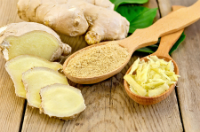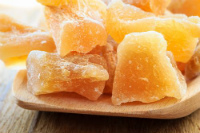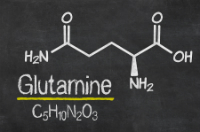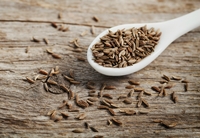DECEMBER 2016
WHAT’S NEW
HEALING ACID REFLUX NATURALLY

Additionally, over half of the body’s lymph fluid is produced in the liver. The lymphatic system is responsible for healthy immune function and acts as your body’s internal janitor, collecting cellular waste products for elimination. These vital functions make the liver a major organ in metabolism and detoxification.
ACID REFLUX AND GERD SYMPTOMS INCLUDE:
- Heart burn
- Dry mouth
- Bitter taste in mouth
- Waking up choking or coughing in the middle of the night
- Hoarseness upon arising or throughout the day
- Gum irritation, including tenderness and bleeding
- Bad breath
- Regurgitation of acid or foods
- Bloating after meals and during bouts of symptoms
- Nausea
- Black stools
- Belching after meals
- Hiccups that are difficult to stop
- Difficulty swallowing (possible sign of narrowing esophagus)
- Unexpected weight loss
- Discomfort worsens when bending over, or laying down
- Chronic throat irritation, soreness and dryness
You may be familiar with prescription and over-the-counter medications for reflux disease, such as proton-pump inhibitors and antacids. At best, these drugs only mask symptoms, providing short-term relief rather than getting to the root cause. From a holistic medicine perspective, possible underlying causes of GERD range from the food you eat and pregnancy to factors such as imbalances in stomach acid (not producing enough stomach acid contrary to mainstream medicine beliefs), food sensitivities, magnesium deficiency, hiatal hernia, H. pylori infection, overuse of antibiotics and stimulants such as caffeine and nicotine.
To get to the root cause of GERD, a holistic physician may test for food sensitivities, evaluate your diet and lifestyle habits, and consider a number of other possible causes. Once the underlying cause has been determined, your doctor may recommend diet changes, herbal and homeopathic remedies, as well as nutritional supplements and physical therapies such as abdominal massage and stress management techniques. Your doctor will use therapies and help you make changes that will restore balance and health to your gut.
HERE ARE A FEW FOODS THAT CAN MAKE ACID REFLUX & GERD WORSE:
- Alcohol
- Carbonated beverages
- Energy drinks
- Sugar
- Artificial sweeteners
- Fried foods
- Vegetable oils, including canola oil
- Spicy foods
- Processed foods
- Corn and potato chips
- Chocolate
- Tomatoes and tomato products
- Creamy/oily prepared salad dressings
- Mint and peppermint
- Grains
Below are a few of the supplements and lifestyle changes that can help you maintain a healthy gut and reduce your risk for heartburn and GERD.
GINGER: Treats various gastrointestinal ailments, including heartburn. It acts as an anti-inflammatory, which can reduce irritation in the esophagus.
LICORICE ROOT: Helps increase mucus production and digestive activity, protecting the stomach and esophagus from acid. Licorice root has been known to increase blood pressure in people diagnosed with hypertension. Be sure to discuss use of this supplement with your health practitioner.
PROBIOTICS: Helps maintain balance in the digestive system between good and harmful bacteria.
DIGESTIVE ENZYMES: Take one or two capsules of a high-quality digestive enzyme at the start of each meal. They help foods fully digest and nutrients absorb properly.
KEFIR: Kefir and yogurt help balance healthy bacteria in the stomach, aiding in digestion and soothing the digestive tract. Select products that have live and active cultures that have been fermented for 24 hours.
BONE BROTH: Made from organic grass-fed beef, slow cooked to extract essential compounds for 48 hours with a couple tablespoons of apple cider vinegar to draw out the collagen, glutamine, proline and glycine.
APPLE CIDER VINEGAR: ACV helps to balance stomach acid and lessen the symptoms of acid reflux. Mix one tablespoon of raw apple cider vinegar with a cup of water and drink five minutes prior to eating.
ADOPT HEALTHY HABITS: Exercise 30 minutes daily. Boost your diet with whole, fresh fruits and veggies, fermented foods, and organic meats. Drink 6-8 glasses of filtered water daily. Maintain a healthy body weight and don’t overeat. Properly care for other medical conditions such as diabetes. Don’t smoke or overuse alcohol, as this can trigger and aggravate reflux.
Other supplements to discuss with your health care provider include melatonin, HCl with pepsin, L-glutamine and a magnesium complex.
Remember, supplements alone do not address underlying lifestyle habits and health conditions that cause GERD. It’s important to work closely with a holistic physician to understand the root cause and your best individualized treatment.
REFERENCES
- Mayo Clinic Online. GERD. Accessed October 10, 2016.
- University of Maryland Complementary and Alternative Medicine Database. GERD. Accessed October 10 2016.
- Ginger. (2012, April). Retrieved October 10, 2016.
- Kandil T. S., Mousa, A. A., et al., “The Potential Therapeutic Effect of Melatonin in Gastro-Esophageal Reflux Disease [Abstract].” BMC Gastroenterology (2010 January 18): 10(7). Retrieved October 7, 2016.
- Lukic, M., Segec, A., et a.l., “The Impact of Vitamins A, C, and E in the Prevention of Gastroesophageal Reflux Disease, Barrett’s Esophagus, and Esophageal Adenocarcinoma [Abstract].” Collegium Anthropologicum, (2012) 36(3), 867-872. Retrieved October 7, 2016.
- Patrick, L., “Gastroesophageal Reflux Disease (GERD): A Review of Conventional and Alternative Treatments.” Alternative Medicine Review, 16(2), 116-133. (2011).
- Dr. Axe, Acid Reflux Diet and Treatment. Accessed December 1, 2016.
FOOD FOR THOUGHT. . .
“To insure good health: Eat lightly, breathe deeply, live moderately, cultivate cheerfulness, and maintain an interest in life.” – William Londen
ZAP INDIGESTION WITH GINGER (Zingiber officinale)

There are many preparations for ginger including ginger chews and lozenges, fresh or dried tea infusions, capsules, and extracts. And here is a great recipe for healthy homemade Ginger Ale, prepared with a freshly grated ginger.
REFERENCES
- Mars, B. & Fiedler, C. Home Reference Guide to Holistic Health & Healing. (2015) p.186. Beverly, MA: Fair Winds Press.
- Johnson, R.L., S. Foster, Low Dog, T. and Kiefer, D. National Geographic Guide to Medicinal Herbs: The World’s Most Effective Healing Plants. (2012) p.140; 158-160. Washington, D.C.: National Geographic.
- WorldsHealthiestFoods.com. Ginger. Accessed October 4, 2016.
- Borrelli F, Capasso R, Aviello G, Pittler MH, Izzo AA. Effectiveness and Safety of Ginger in the Treatment of Pregnancy-Induced Nausea and Vomiting. Obstet Gynecol. (2005) Apr;105(4):849-56. PMID:15802416.
- Hoffmann, D. Medicinal Herbalism. The Science and Practice of Herbal Medicine. Rochester, Healing Art Press 2003.
- Ginger Root Supplement Reduced Colon Inflammation Markers, University of Michigan Health System, 11 October 2011.
GINGER CHEWS

- 1/4 cup shredded fresh ginger root – packed
- 3/4 cup organic cane sugar (brown sugar works too)
- 1/4 cup pure honey (raw honey optional but not necessary here)
- Coconut oil
- Candy thermometer
- Parchment Paper
Grate ginger root, pack it down into a 1/4 measuring cup, and add to water in a saucepan and simmer until half the liquid has evaporated (about 30 minutes). Strain and discard ginger. Reserve 1 cup of ginger decoction. Grease a small glass dish (approx. 7×4 inch) with coconut oil. Cut some parchment paper to fit the bottom of the pan and cover it with coconut oil too. Pour ginger decoction into a large clean saucepan. Add sugar and honey over high heat until it reaches 260 degrees or passes a water drop test, which is the preferred method.
Water drop test: Get a cup of VERY cold water and drop a small amount of syrup in. Use a spoon to retrieve your candy. You’ll be able to feel if it’s too soft or just right. Remember… you want it chewy… not runny or hard.
When temperature is reached or syrup has passed a water test, pour candy into pan and let sit for 30 minutes. Turn dish over and remove parchment paper from the bottom of the candy. After coating a sharp knife in coconut oil, or running it under HOT water, cut the candy into small strips (1/2 x 1 inch). Wrap in extra parchment paper for storage. If the candy gets stuck in the pan, use a spoon and scoop out bits of sticky candy to mold and wrap. This will take a little extra work, but the chews will be exactly the same.
REFERENCES:
Adapted from Vintage Remedies recipe.
L-GLUTAMINE FOR GUT STRENGTH

L-Glutamine supplements are usually in pill form, but you can also find a powder version which should be mixed with a cool liquid. It’s critical to remember: Always use cool, never hot foods or liquids. Heat destroys glutamine. Unless otherwise recommended and supervised by your health practitioner, a glutamine supplement is not recommended for children under age 10 or for people with kidney or liver disease, or a history of seizures. Proper dose is crucial to how well L-glutamine works. Always consult with your holistic practitioner before adding a supplement such as glutamine to your diet.
REFERENCES
- University of Maryland CAM Database. “Glutamine.” Accessed on October 4, 2016.
- Rapin, Jean Robert, and Nicolas Wiernsperger. “Possible Links between Intestinal Permeability and Food Processing: A Potential Therapeutic Niche for Glutamine.” Clinics 65.6 (2010): 635-643. PMC. Web. 4 Oct. 2016.
- Larson, Shawn D. et al. “Molecular Mechanisms Contributing to Glutamine-Mediated Intestinal Cell Survival.” American Journal of Physiology.
- Gastrointestinal and Liver Physiology 293.6 (2007): G1262-G1271. PMC. Web. 4 Oct. 2016.
- Weitzel L, Wischmeyer P. “Glutamine in Critical Illness: The Time Has Come, The Time Is Now.” Critical Care Clinics. 2010;26(3).
SEEDS FOR GOOD DIGESTION: CUMIN (Cuminum cyminum)

It’s best to cook with whole cumin seeds that you grind with a mortar and pestle. Packaged cumin powder is more convenient but it loses its flavor faster than whole seeds. Whole seeds will keep for a year, when stored in a cool, dark place, while powder should be used within six months. For enhanced flavor, roast cumin seeds before using them.
REFERENCES
- “Curcumin v. Cumin: Not the Same.” Accessed on October 4, 2016.
- WorldsHealthiestFoods.com: Cumin. Accessed on October 4, 2016.
- Agah, Shahram et al. “Cumin Extract for Symptom Control in Patients with Irritable Bowel Syndrome: A Case Series.” Middle East Journal of Digestive Diseases 5.4 (2013): 217-222.
THE POWER OF CHIROPRACTIC MEDICINE

The theory behind how chiropractic works for digestive disorders is that subluxation interrupts communication between nerves and the gut. Restoring communication promotes healthy mobility of the muscles in the digestive tract. It also promotes proper secretion of digestive juices and regulation of hormones important to gut health.
Chiropractors restore normal function by using hands-on therapies called adjustments to correct the subluxation in the spine and other joints that may be affected. They may also use massage and corrective exercises, depending on the condition. This approach honors the body’s innate ability to heal and aims to reduce/eliminate symptoms, restore healthy function, and enhance quality of life.
Chiropractic may be an important adjunctive treatment in managing digestive health concerns for some people. A review of research published between 1980 and 2012 indicated mild to moderate improvements in report of patient symptoms for a variety of digestive conditions, including irritable bowel syndrome, constipation, GERD, and colitis. Other studies did not find significant improvement in patient symptoms. There is a need for more well-designed clinical studies in order to make definitive statements about chiropractic treatment for digestive disorders. As with other treatments where research is still emerging, individual patient considerations play an important role in how someone responds to a treatment.
REFERENCES
- National Center for Complementary and Alternative Medicine: Chiropractic In Depth.
- Chiropractic and Digestive Concerns
- NaturalNews.com “Chiropractic Helps Digestive Disorders.” Posted by Dr. David Jockers ( 09 July 2010). Accessed on 15 November 2016.
- Angus, K., Sepideh A., & Gleberzon, B. “What Effect Does Chiropractic Treatment Have on Gastrointestinal (GI) Disorders: A Narrative Review of the Literature.” The Journal of the Canadian Chiropractic Association 59.2 (2015): 122-133. Accessed on October 6, 2016.
- Ernst, E. “Chiropractic Treatment for Gastrointestinal Problems: A Systematic Review of Clinical Trials.” Canadian Journal of Gastroenterology 25.1 (2011): 39-40. Accessed 15 November 2016.
GUIDING PRINCIPLES

First Do not Harm

Identify and Treat the cause

Healing Power of Nature

Doctor as Teachers

Treat the Whole

Prevention is best Medicine
Follow us on instagram
BLOG
Become an educated consumer with our Indigo Blogs and prevent dis-ease.
Our Doctors have been featured in:









